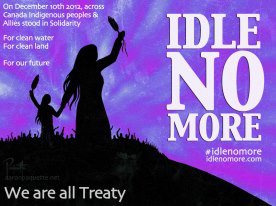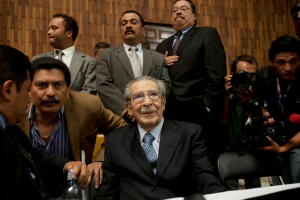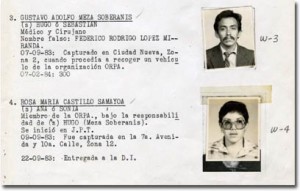On December 10th, mass actions were coordinated across Canada by Indigenous peoples and allies to challenge the Harper government’s neglect of First Nations, Metis, and Inuit issues. The pervasive resource extraction on native lands, stifling poverty and mortality rates on reserves and ongoing indifference to treaty rights by the Harper administration are the major focal points for agitation. This continued movement, self named Idle No More, represents all First nations, Inuit, Metis, and allies of every shade who seek to decolonize not just the political landscape but the forms of protest as well. From Victoria, BC to Montreal, QB and solidarity actions from LA to London, the possibilities for grass roots actions ranging from Flash Mobs to teach-ins has enabled a broad array of people to engage the movement’s call for everyday resistance. The issues facing Indigenous peoples have always been a part of Canada’s nation building and myth making, just as they are in the United States and the Americas. Further to the point for archives, the ongoing attempt at gathering and recording the human rights abuses of the church and state in the past through Indian Residential Schools will remain a disembodied historical corpse as long as the Canadian government, and large swaths of the settler population, continue to ignore the past’s clutch on the colonized present. What better way to make good on the apology issued by Harper before parliament than to present some truth and reconciliation by addressing how the current “institution neglects and abuses” those of the generations after residential schools. How tar sands, pipelines, damming and mining operations will ensure the destruction of the ecosystem. How incarceration rates of Indigenous peoples is nine times greater than the national average. How the ongoing disassociation of urban population to rural land grows with each economic deregulation venture.
Nigamo Pejig! 
UConn Archives & Special Collections, on Algonquin land, has a wide array of materials relating to struggles of Native Peoples throughout the 20th century in our radical Alternative Press Collection.





